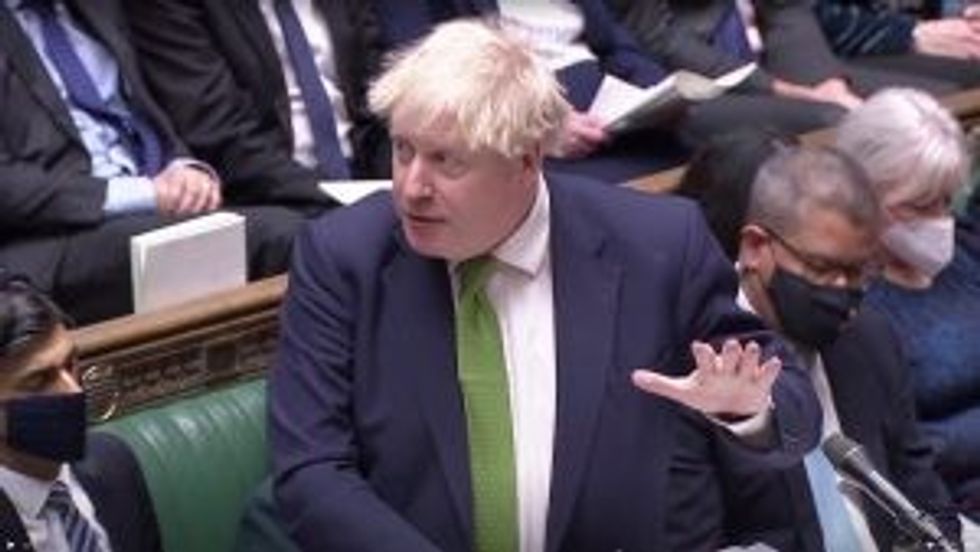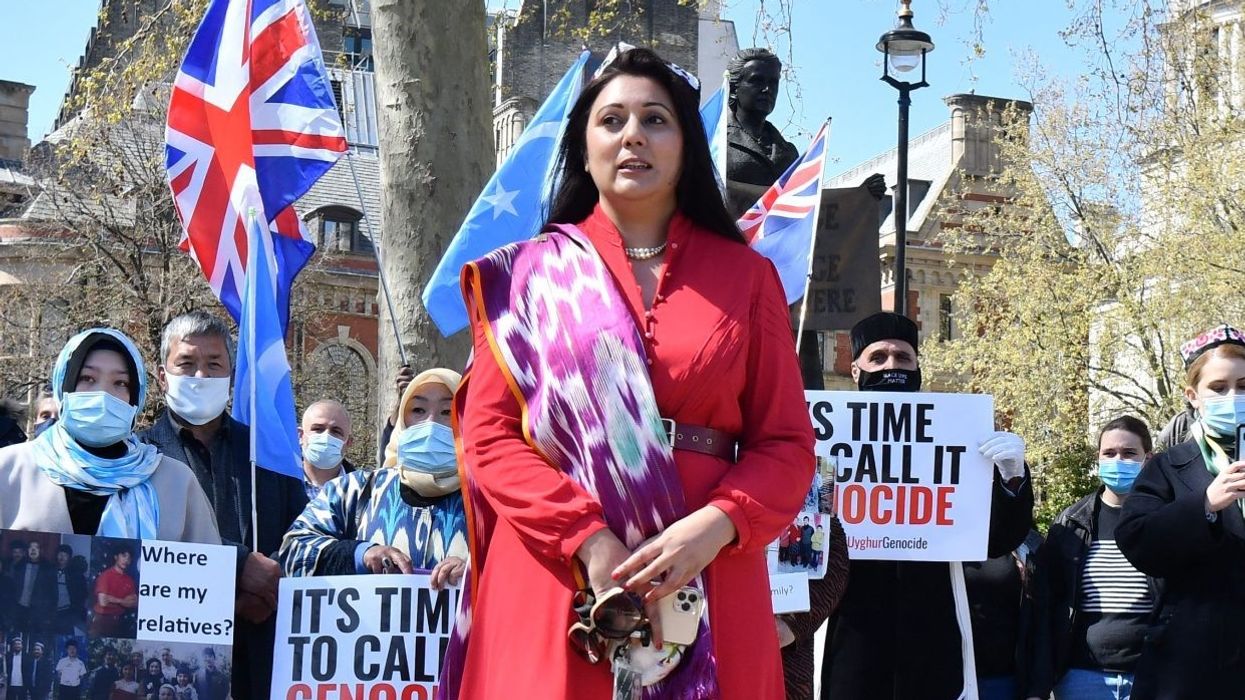A British lawmaker has said she was fired from a ministerial job in prime minister Boris Johnson's Conservative government partly because her Muslim faith was making colleagues uncomfortable, the Sunday Times reported.
Nusrat Ghani, 49, who lost her job as a junior transport minister in February 2020, told the paper she was told by a "whip" - an enforcer of parliamentary discipline - that her "Muslimness" had been raised as an issue in her sacking.
There was no immediate response to her comments from Johnson's Downing Street office, but Mark Spencer, the government's chief whip, said he was the person at the centre of Ghani's allegations.
"These accusations are completely false and I consider them to be defamatory," he said in a series of Twitter posts that later appeared to have been deleted. "I have never used those words attributed to me."

Ghani's remarks come after one of her Conservative colleagues said he would meet police to discuss accusations that government whips had attempted to "blackmail" lawmakers suspected of trying to force Johnson from office over public anger about parties held at his Downing Street office during Covid lockdowns.
The scandals have drained public support from both Johnson personally and his party, presenting him with the most serious crisis of his premiership.
"I was told that at the reshuffle meeting in Downing Street that ‘Muslimness’ was raised as an ‘issue’, that my ‘Muslim women minister’ status was making colleagues uncomfortable," the paper quoted Ghani, Britain's first female Muslim minister, as saying.
"I will not pretend that this hasn’t shaken my faith in the party and I have at times seriously considered whether to continue as an MP (member of parliament)."
In his response, Spencer said Ghani had declined to put the matter to a formal internal investigation when she first raised the issue last March.
The Conservative Party has previously faced accusations of Islamophobia, and a report in May last year criticised it over how it dealt with complaints of discrimination against Muslims.
The report also led Johnson to issue a qualified apology for any offence caused by his past remarks about Islam, including a newspaper column in which he referred to women wearing burqas as "going around looking like letterboxes".
INTIMIDATION AND BLACKMAIL
Ghani's comments about the whips' behaviour also echo allegations from William Wragg, chair of the Public Administration and Constitutional Affairs Committee, who said on Thursday some Conservatives had faced intimidation and blackmail because of their desire to topple Johnson.
"Nus is very brave to speak out. I was truly appalled to learn of her experience," Wragg said on Twitter on Saturday. He has told the Daily Telegraph newspaper that he would meet the police early next week to discuss his allegations.
Johnson has said he had neither seen nor heard any evidence to support Wragg's claims. His office has said it would look at any such evidence "very carefully".
"As with any such allegations, should a criminal offence be reported to the Met, it would be considered," said a spokesperson for London's Metropolitan Police.
Johnson, who in 2019 won his party's biggest majority in more than 30 years, is fighting to shore up his authority after a series of revelations about parties in his Downing Street residence during COVID lockdowns.
The "partygate" scandals, which followed criticism of the government's handling of a corruption row and other mis-steps, have dominated British politics for more than a month.
Johnson, who has repeatedly apologised for the parties and said he was unaware of many of them, has admitted he attended what he said he thought was a work event on May 20 last year, when social mixing was largely banned. Invitations had asked staff to "bring their own booze" to the event.
Senior civil servant Sue Gray is expected to deliver a report into the parties next week, with many Conservative lawmakers saying they would await her findings before deciding whether they would take action to topple Johnson.
The Sunday Times also reported that Gray was looking into whether any rule-breaking parties had been held in Johnson's private apartment at Downing Street.
(Reuters)




